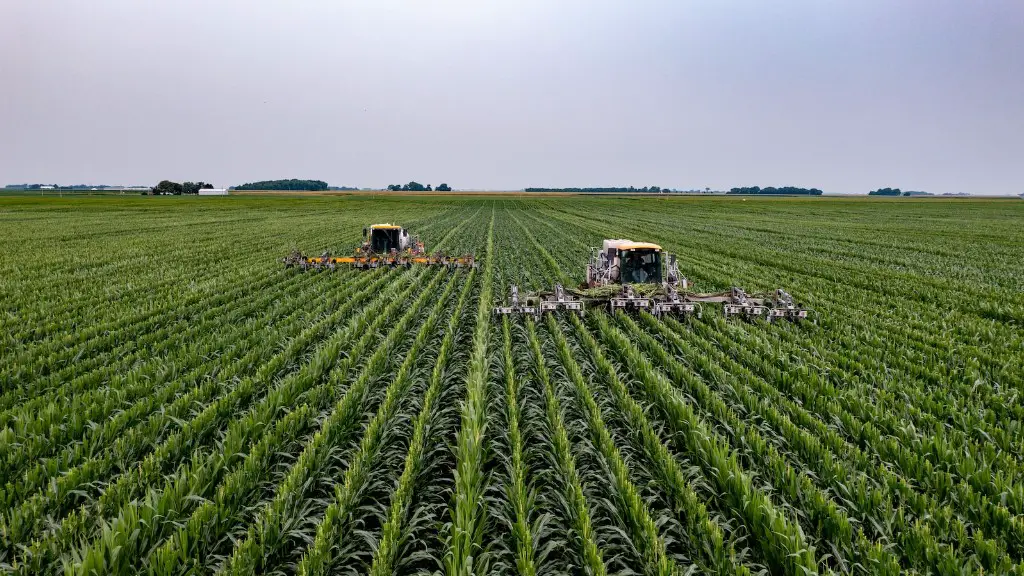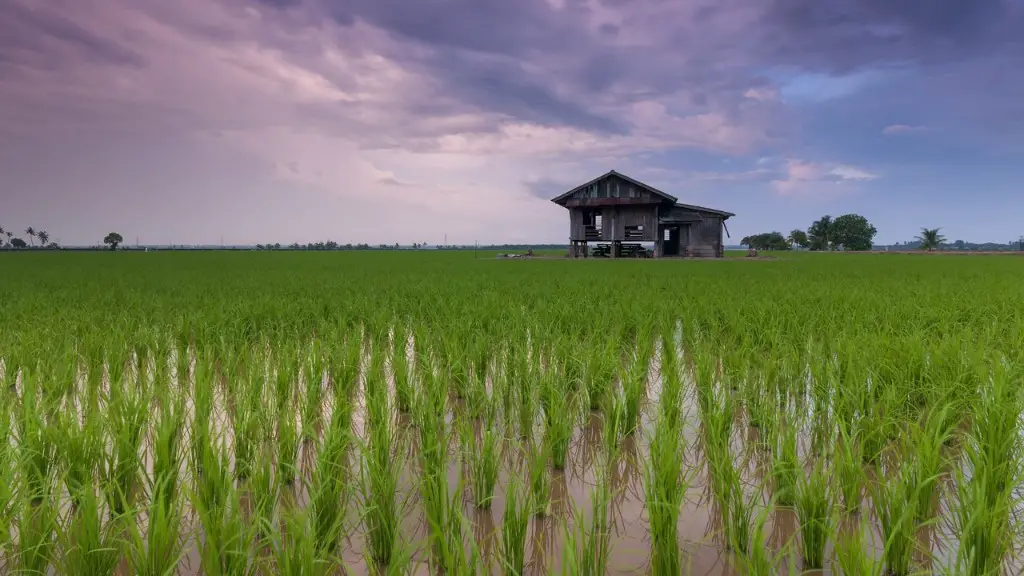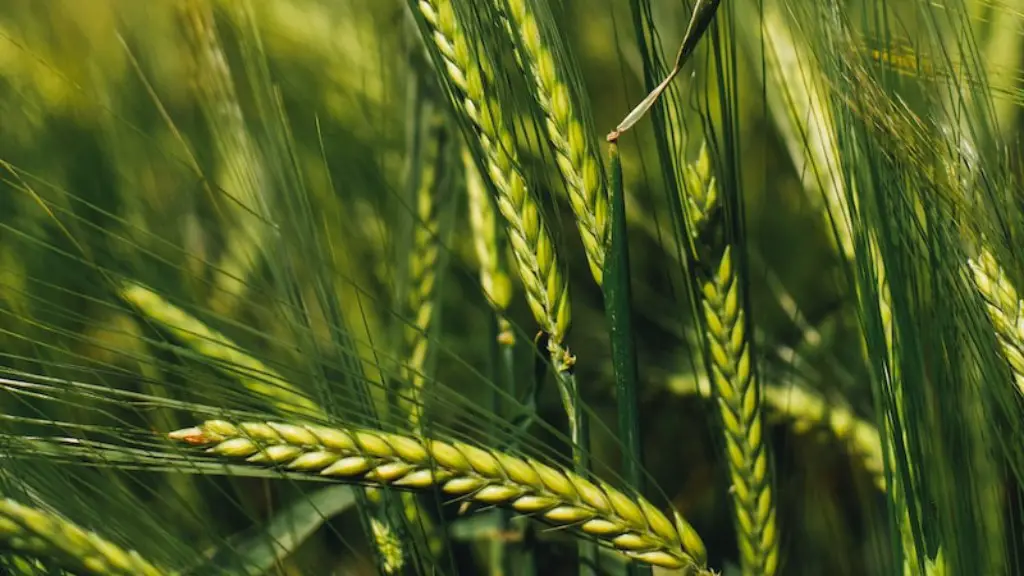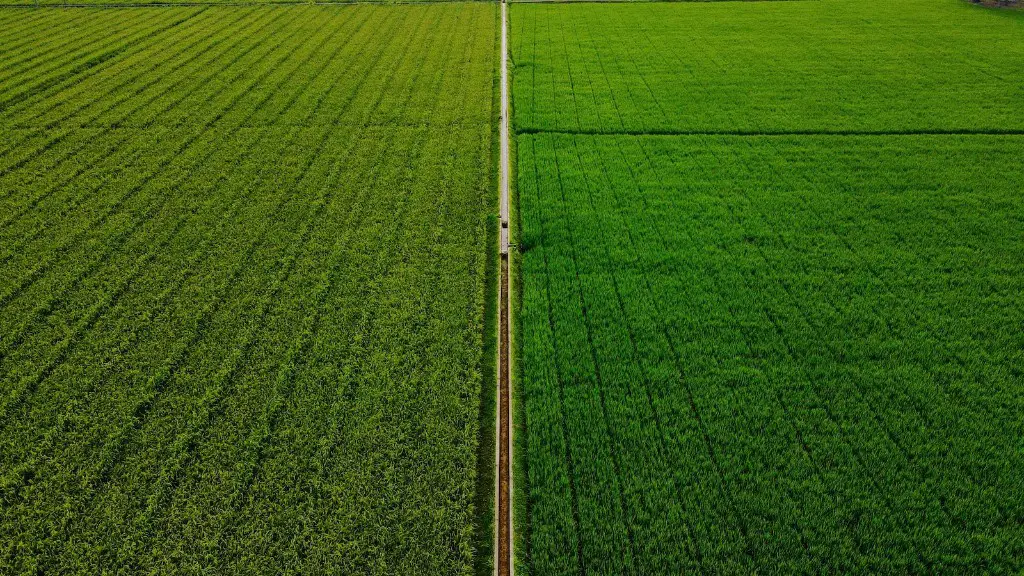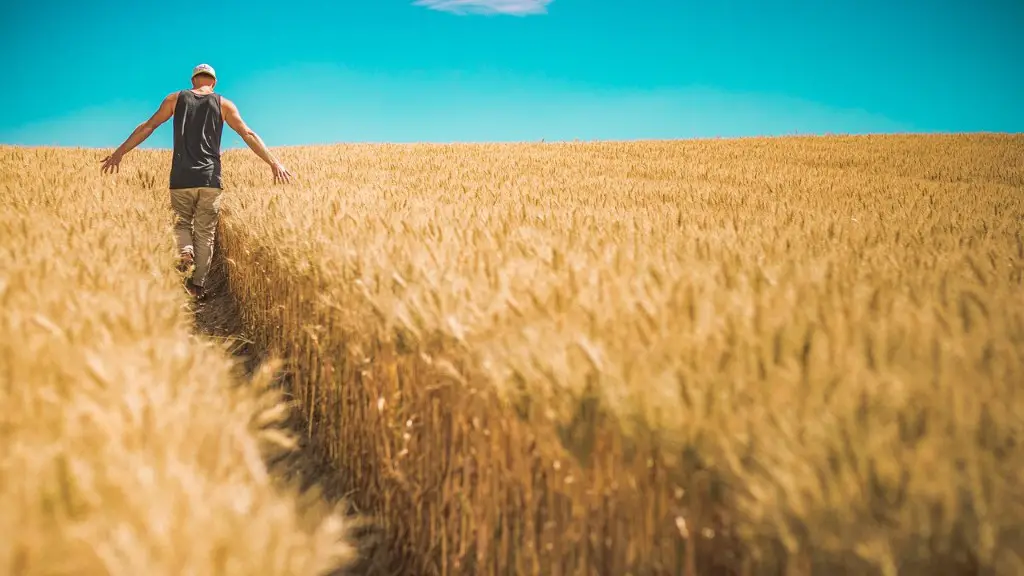Agriculture has long been considered a major contributor to water pollution. Farming activities can pollute water through the use of fertilizers, pesticides, and livestock. crop production can also generate large amounts of dust and soil erosion, which can end up in waterways. In addition, agricultural runoff can contain high levels of nutrients that can lead to algal blooms and other water quality problems.
Agriculture can contribute to water pollution in a number of ways. Pesticides and fertilizers can runoff from fields and enter nearby water sources, polluting the water. Animal waste from farms can also contaminate water sources. Poorly managed irrigation systems can lead to water waste and ultimately, water pollution.
How does agriculture cause water pollution?
The proper disposal of livestock waste is essential to protecting human health and preventing excess nutrient pollution in surface waters. Irrigation can move salt and other dissolved minerals from the soil to surface water, which can threaten human health if not properly managed. Proper management of livestock waste can help to prevent these problems.
Livestock are a significant source of agricultural emissions, accounting for 36 percent of the total. There are a number of ways to reduce these emissions, including improved management practices, breeding for more efficient animals, and changes in diets.
How does agriculture increase pollution
Agriculture is the leading source of pollution in many countries. Pesticides, fertilizers and other toxic farm chemicals can poison fresh water, marine ecosystems, air and soil. They also can remain in the environment for generations.
Many countries have enacted regulations to try to reduce the amount of pollution from agriculture, but it remains a serious problem. Agricultural pollution can have a devastating impact on the environment and human health.
Water pollution is a major environmental issue that affects many agricultural areas around the world. The main contributors to water pollution are nutrients, pesticides, salts, sediments, organic carbon, pathogens, metals and drug residues. These contaminants can have a negative impact on the quality of water resources and the health of people and animals.Water pollution control is a key priority for many governments and organizations in order to protect the environment and human health.
How does agriculture waste water?
Agricultural wastewater can come from a variety of sources, but some of the most common include manure, milking center wash water, and barnyard and feedlot runoff. This type of wastewater can contain harmful bacteria and pollutants that can contaminate water supplies and cause serious health problems. Treatment of agricultural wastewater is essential to protect the environment and public health.
While agriculture can have negative impacts on the environment, it can also have positive impacts. Agriculture can trap greenhouse gases within crops and soils, or mitigate flood risks through the adoption of certain farming practices. These positive impacts can help offset the negative impacts of agriculture and help to protect the environment.
What are the 4 pollutants from agriculture?
Agricultural residues are the primary source of agricultural pollution in rivers. These residues include plant materials and animal manure that are left behind after crops are harvested or animals are slaughtered. These residues can contain a variety of pollutants, including pesticides, fertilizers, and pathogens.
Fertilizers and pesticides are another major source of agricultural pollution. These chemicals can runoff from fields and into rivers, where they can cause a variety of problems, including eutrophication and waterborne illnesses.
Animal husbandry is another significant source of agricultural pollution. Animal manure can contain a variety of pollutants, including pathogens, nutrients, and heavy metals. This manure can runoff from fields and into rivers, where it can contaminate water supplies and cause waterborne illnesses.
Excess salts from applied irrigation water can also contribute to agricultural pollution. These salts can accumulate in the soil and reduce its ability to retain water. This can lead to waterlogging and Salinization, which can damage crops and make soils unsuitable for agriculture.
The main causes of water pollution are global warming, deforestation, industry, agriculture and livestock farming, rubbish and faecal water dumping, maritime traffic and fuel spillages.
Is agriculture the leading cause of pollution
Airborne ammonia pollution from farms is a major environmental issue in the United States. Farms are responsible for more than 90 percent of this pollution, which comes mostly from fertilizers and livestock manure. This pollution can have a significant impact on air quality, and it can also contribute to the formation of hazardous airborne particles.
Agricultural soils are a dominant source of NO x pollution in California. The state’s Central Valley region is especially prone to high soil NO x emissions.
What are the negative effects of water pollution in agriculture?
Agricultural water can become contaminated in many ways, which can spread bacteria, viruses, and parasites to crops and animals. There are a variety of ways to reduce the risk of contamination, including proper storage and treatment of water, and using safe water sources.
Agriculture is responsible for 70% of water use, and yet it is also the world’s biggest polluter. How is this possible? The answer lies in the way that agriculture is managed. In the EU, farms use 173 million hectares of land for agricultural production, while the US farms use up to 370 million hectares. This difference in land usage means that the EU farms are much more efficient in their use of water. However, this efficiency comes at a cost. The EU farms use more chemicals and artificial fertilizers than the US farms, and these chemicals are the main cause of water pollution.
What is the largest contributor to water pollution
Sewage and wastewater treatment are the main point sources of pollution in water, while farming and fossil fuel power plants are the main sources of diffuse pollution.
Agricultural pollution is a huge problem that needs to be addressed. It includes liquid and solid wastes from all types of farming activities, including run-off from pesticide and fertilizer use, and from feedlots. Erosion and dust from ploughing, animal manure and carcasses, and crop residues and debris all contribute to agricultural pollution. This problem needs to be tackled head-on in order to protect our environment and ensure that our food supply is safe.
Does agriculture threaten the quality of water?
Agricultural practices can have negative impacts on water quality. Improper agricultural methods may elevate concentrations of nutrients, fecal coliforms, and sediment loads. Increased nutrient loading from animal waste can lead to eutrophication of water bodies which may eventually damage aquatic ecosystems.
While the large-scale, conventional farming system does result in high production levels, it unfortunately also is a leading contributor to climate change, pollution of air and water, and depletion of soil fertility. This type of farming typically focuses on intensive single crop production, mechanization, and depends heavily on fossil fuels, pesticides, antibiotics, and synthetic fertilizers. In order to protect our environment and preserve our natural resources, it is important to consider more sustainable farming practices.
Warp Up
Agricultural activities are a major source of water pollution. Chemicals used in farming, such as pesticides and fertilizers, can contaminate water supplies. Animal waste from livestock can also pollute water. Agricultural runoff, which is water that carries pollutants from the farm to nearby waterways, is a major problem. Improperly managed agricultural waste can pollute rivers, lakes, and coastal areas.
Although agriculture is often thought of as a environmentally friendly industry, it can actually contribute significantly to water pollution. One of the main ways agriculture contributes to water pollution is through the use of pesticides and fertilizers. These chemicals can runoff into nearby waterways, causing problems for plants, animals, and people who rely on those water sources. Another way agriculture can pollute water is by raising livestock. Livestock produce large amounts of waste that can contaminate nearby water sources if not properly managed.
Overall, agriculture can have a major impact on water pollution. However, there are steps that farmers can take to reduce their impact. These steps include using more environmentally friendly farming practices, such as using organic pesticides and fertilizers, and properly managing livestock waste. By taking these steps, agricultural businesses can help to protect our waterways and ensure that they remain clean and safe for everyone.
